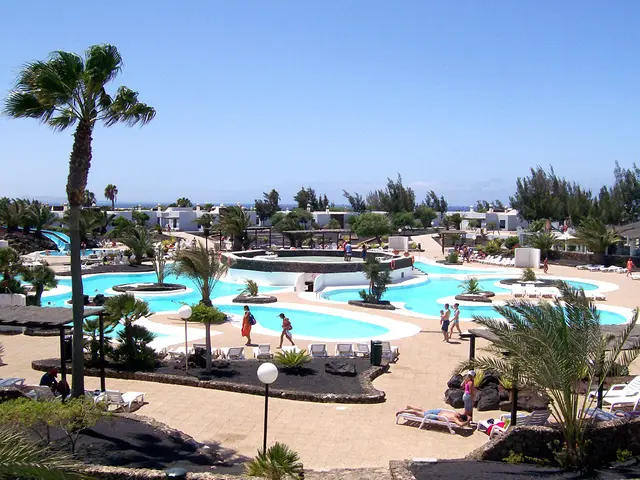EU unveils €500 million incentive to entice researchers from Trump's U.S.
In a swift effort to counteract US science policies under President Donald Trump, French President Emmanuel Macron and EU Commission President Ursula von der Leyen are set to host a Paris conference, aptly named "Choose Europe for Science." The goal? Enticing disgruntled American scientists to relocate by dangling attractive financial incentives.
This conference, hosted by the renowned Sorbonne university, has the European Commissioners, scientists, and ministers for research from member countries gathered to discuss potential financial incentives and ways to lure their American counterparts across the Atlantic.
With an eye towards the future, von der Leyen announced the EU's intention to allocate a substantial multi-million Euro package for the period of 2025-2027, positioning Europe as a magnet for researchers. Speaking in Paris, she emphasized, "Science is an investment - and we need to offer the right incentives. That's why I can announce that we will put forward a new €500 million package to make Europe a magnet for researchers."
Von der Leyen showcased Europe's commitment to research and development, stating the aim to have EU-member states invest 3 percent of their gross domestic product in research and development by 2030.
Macron, too, echoed the continental message, stating, "If you love freedom, come and do your research here." He criticized the Trump administration's US science policy as a "diktat" and an "error," adding, "We refuse a diktat consisting of any government being able to say you cannot research this or that."
As the US research community grapples with increased political and financial pressure, including threats of dramatic federal funding cuts, the EU aims to provide a feasible alternative for concerned researchers. French universities such as Aix Marseille University have reported a flood of applicants for their "Safe Place for Science" scheme, established to welcome US scientists threatened by cuts.
Experts, while acknowledging the competitive research infrastructure and high quality of life offered by EU countries, raise concerns about the significant funding and researchers' remuneration disparities compared to the US. But, CNRS President Antoine Petit remains hopeful, suggesting that the lower cost of education and healthcare, along with more generous social benefits, will lessen the pay gap's impact. The French government and the EU have targeted researchers in various sectors, including but not limited to health, climate, biodiversity, artificial intelligence, and space.
- The conference aims to promote health-and-wellness in the workplace by discussing workplace-wellness initiatives.
- The health sector, one of the targeted areas, is expected to benefit from increased funding due to the EU's focus on therapies-and-treatments.
- Science plays a crucial role in the economy, and the EU's investment in science could stimulate economic growth.
- The EU's commitment to research and development may lead to advancements in technology, particularly in areas like artificial intelligence.
- Education is another sector that could see significant improvements, with the EU's investment in environmental-science and education-and-self-development.
- The EU's initiatives are also intended to address climate-change, by funding research in this critical area.
- The EU's plans could potentially attract more foreign investment, particularly in the finance and personal-finance sectors.
- The EU's focus on space-and-astronomy could have implications for the technology industry, potentially leading to advancements in data-and-cloud-computing and other tech-related areas.
- Lifestyle choices could also be impacted, with a shift towards healthier, more sustainable options encouraged by the EU's emphasis on fitness-and-exercise and food-and-drink.
- Fashion-and-beauty trends may evolve as the EU invests in environmental-science, potentially leading to the development of eco-friendly products.
- The EU's incentives could attract researchers in various fields, from medicine to finance, creating a diverse and vibrant research community.
- Medicaid, or Medicare, could see changes due to the EU's investment in healthcare.
- The EU's focus on health could extend to sports, with sports-betting and sports-analysis being influenced by the EU's investment in data-and-cloud-computing and artificial-intelligence.
- Basketball, a popular sport in both the US and Europe, could see increased interest due to the EU's focus on sport.
- Changes in the weather could impact travel plans, and the EU's investment in climate-change research could lead to more accurate weather forecasting.
- The EU's focus on research and development could lead to advancements in sports equipment and technology.
- Personal-growth and career-development could be enhanced by the EU's investment in education-and-self-development.
- High-quality research can lead to innovative solutions in various sectors, from healthcare to technology, fostering a culture of learning and innovation.
- The EU's investment in research and development could have ripple effects, influencing everything from home-and-garden DIY projects to shopping trends, and ultimately shaping the lifestyle of European citizens.










